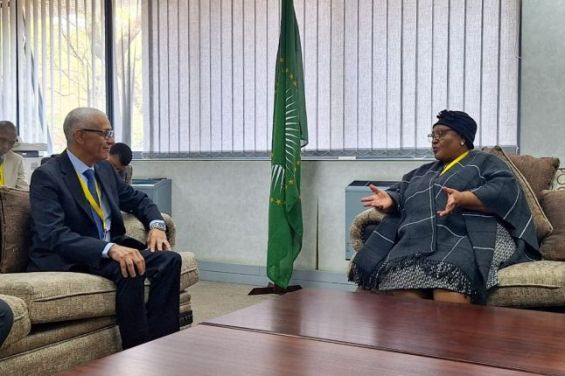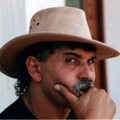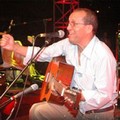The Speaker of the House of Representatives, Rachid Talbi Alami, held bilateral talks with the Speaker of the National Assembly of South Africa, Angela Thokozile Didiza, in Johannesburg on Friday. Alami expressed to his South African counterpart «the readiness of the Kingdom of Morocco to develop a fruitful cooperation with South Africa and to extend it to several promising sectors (...) Morocco is willing to share its expertise and experience with South Africa in many fields», reports MAP.
«Morocco and South Africa are two major and influential countries in Africa, and it is therefore incumbent on them to make the most of their comparative advantages to strengthen their cooperation, for the benefit of their peoples and the continent, in a spirit of complementarity», he declared.
For the record, the former Minister of Foreign Affairs, Naledi Pandor, revealed last March at a conference in Washington attended by the Kingdom's Ambassador to the United States, Youssef Amarani, that her country would like to benefit from Morocco's expertise in the automotive industry.
A first step on a journey of a thousand miles
The President of the National Assembly of South Africa, Angela Thokozile Didiza, reminded Talbi Alami of the recent general elections in her country, held on May 29, which did not give an absolute majority to any political party. «After discussions and negotiations, the choice was finally made to form a government of national unity», she stressed.
Didiza, a member of the ANC, «hailed Morocco's democratic experience and expressed her willingness to develop fruitful bilateral cooperation with the Kingdom», reports MAP. The Speaker of the House of Representatives is in South Africa to take part in the 12th Annual Conference of Speakers of African National Parliaments, being held from September 18 to 20 in Johannesburg.
Relations between Morocco and South Africa are tense. The kingdom accuses Pretoria of supporting the Polisario. A support that the government of President Cyril Ramaphosa never ceases to reiterate. On September 10 in Geneva, its ambassador to Switzerland took part in a conference organized by the Front under the theme «From occupation to self-determination: a comparison between Western Sahara and Palestine».
«Morocco will never allow South Africa to have a role in the Sahara issue», Ambassador Omar Hilale had hammered home the day after the visit to President Ramaphosa's country in February by the UN Secretary-General's Personal Envoy for Western Sahara, Staffan di Mistura.
These talks between Talbi Alami and Didiza are the first between high-level officials from the two countries, following the formation of the unity government in Pretoria. It is worth noting that South African diplomacy had published a photo of Moroccan Foreign Minister Nasser Bourita and his counterpart Ronald Lamola in July, on the occasion of a session of the African Union Executive Council held in Accra, but this was not followed by a press release. Rabat was equally silent.
For its part, the Institute for Security Studies (ISS) in South Africa asserted in August that Polisario's efforts to create a new state in North Africa were gradually declining, while recognition of Morocco's autonomy plan for the Sahara as the only permanent solution was gaining increasing support among the world powers.
The Polisario continues to enjoy the support of the ANC and the Communist Party, as well as trade unions close to President Ramaphosa's party. These organizations met in Johannesburg on September 6 to show their support for the Front.




 chargement...
chargement...












